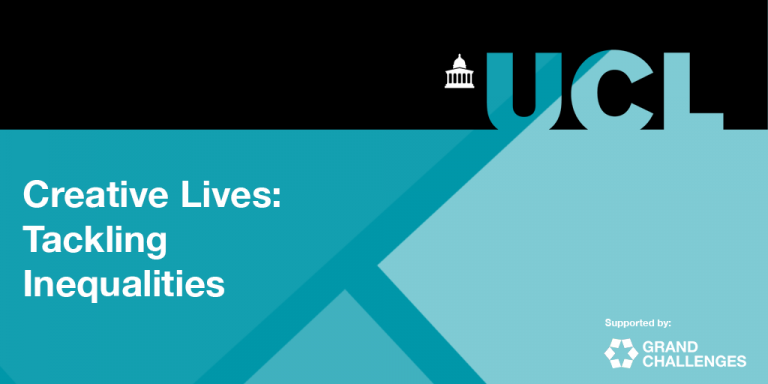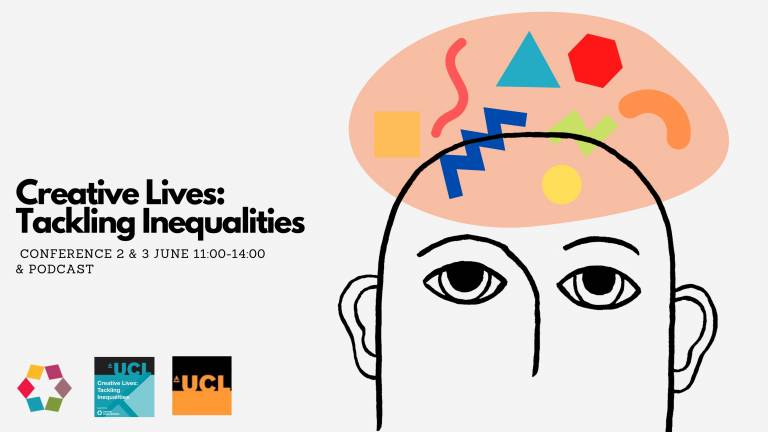“Creative Lives: Tackling Inequalities” is a conference and series of podcasts, which open a provocative, creative virtual forum.

The aim of this series is to investigate how creative health approaches and social prescribing can be used to connect and communicate throughout life and generations. The conference and podcast will involve both experts from around the world and also artists, performers, practitioners and experts by experience, from local communities.
Creative Lives podcast
Episode 1: Young people's mental health and wellbeing, with Dr Thomas Kador (UCL Arts Science) and artist Lidia Lidia. Presented by Lorna Collins (Behavioural Science and Health).
Episode 2: Community, communication, and engagement, with Michael Chandler (CEO, The Union Chapel Project). Presented by Lorna Collins.
Episode 3: Helping hands - loss, bereavement, vulnerability, with Jess Turtle (co-founder, Museum of Homelessness) and Dr Anne Lanceley (UCL Institute for Women's Health). Presented by Lorna Collins.
Episode 4: Older people, healthcare provision and access in ageing societies, with Neel Desai (UCL School of Pharmacy) and Veronica Franklin Gould FRSA (Founder and President, Arts 4 Dementia). Presented by Lorna Collins.
Episode 5: Intergenerational cohesion - generations, culture, and identity, with Professor Charlotte Faircloth (UCL Social Research Institute) and Michelle Kindleysides (Beamish Museum). Presented by Lorna Collins.
Episode 6: Lifelong Learning, with Emily Bradfield (Independent Arts Consultant) and Deborah Padfield (St. George's, University of London). Presented by Lorna Collins.
Creative Lives conference
This conference took place on 2-3 June 2021. It investigated how creative health approaches and social prescribing can be used to connect and communicate life through generations. We invited both experts from around the world and also artists, performers, practitioners and experts by experience from local communities. Our aim was to provide interdisciplinary cohesion and a bridge between the academic world and the general public, between policy and third sector organisations.

 Close
Close

